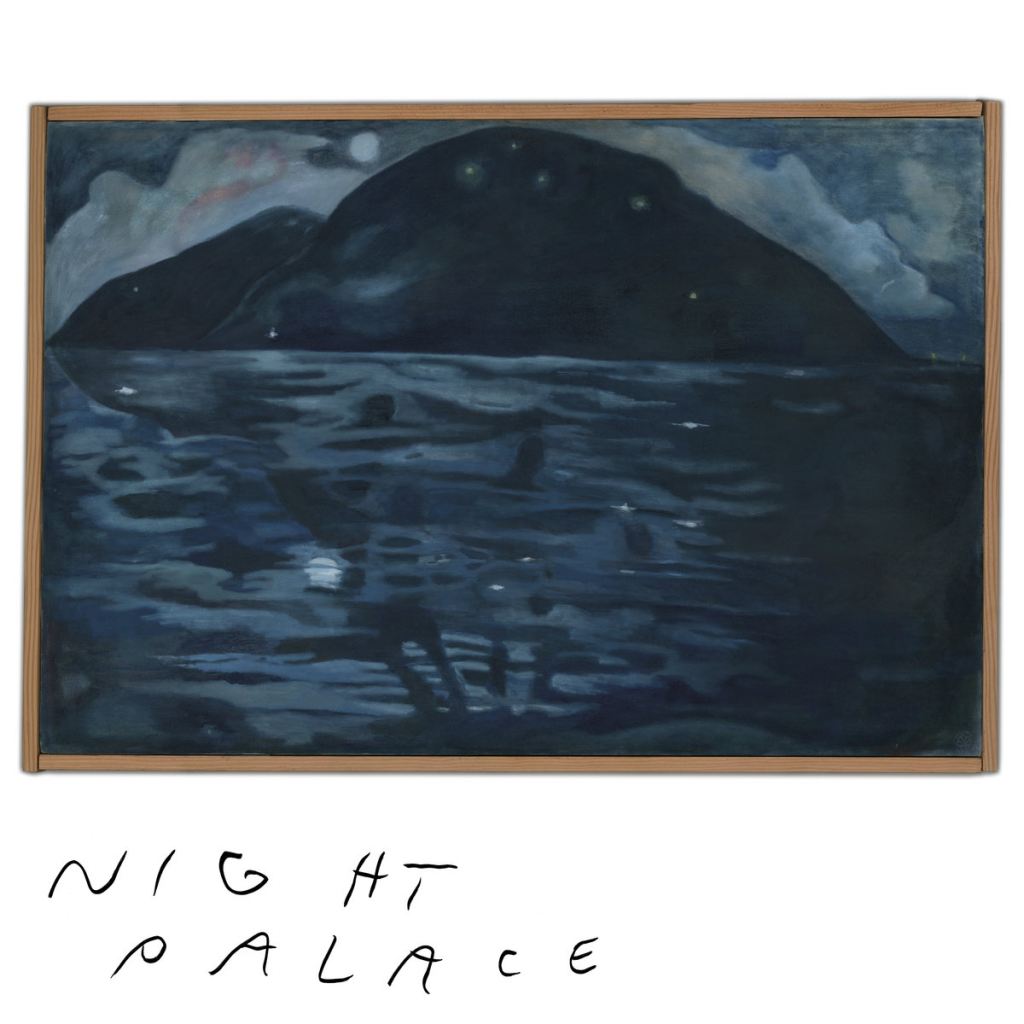Night Palace
Mount Eerie (P.W. Elverum & Sun, 2024)
Phil Elverum just wants to feel alive. All of his music, be it released under The Microphones or Mount Eerie, sits at this intersection of life and death that we can quaintly call “being alive.”
After nearly 30 years writing and recording music Elverum’s work can be viewed as simultaneous music catalog, life memoir, and philosophical-spiritual tome. But after all this time it is clear he still loves music and recording it. In interviews he’ll describe the process of making certain distorted sounds via air organ, and then he’ll go on to talk about doing controlled burns and how maybe the way the embers never seem to go fully out is a metaphor for the “eternal glow” and that “impermanence is the one permanent thing.”
Over time Elverum has slowly explored this life philosophy and how he has, either through will or non-consensual force, come face to face with this “eternal glow,” this “being alive.” It has brought his career through a bending and winding exploration of different sounds and lyrical themes, from the youthful avant-folk of his early recordings (It Was Hot, We Stayed In The Water and The Glow Pt. 2), to the mid career turn to black metal influenced abrasion (Wind’s Poem and Ocean Roar), through Zen meditation (Sauna), through the hyper-realist grief of losing his wife and mother of his child (A Crow Looked At Me and Now Only).
Two constants remain in all of this music: he wants to feel the depth of what it means to be alive, and he is going to utilize ecological metaphors to get there. Themes and mentions of wind, fog, water, mountains, fire, bushes, sand, and sleeping outside crop up throughout his career. But they aren’t just metaphors.
This dialectic of life and death continues on Mount Eerie’s new album Night Palace. The same ecological themes continue too. Elverum is talking with fish and meditating on the fall rainy season of his new found home on the remote Orcas Island. Sonically, it is a sampler of Elverum’s nearly thirty-year career. Elverum has also become his most politically blatant. This shift is summed up neatly on “Demolition” when he says: “Trying to get perspective in the fog of America I shrug and laugh, and count myself in, yes I kick and jump beyond this inheritance, this too-shallow view, back to the land to land back.”
This intersection of life and death takes a turn towards an earnest and urgent plea for decolonization on Night Palace. There are sprinkles of this throughout Elverum’s career—see 2017’s “Crow”, for example. He often questions our use of land and hates wealth hoarders. Here he is titling songs “Non-Metaphorical Decolonization,” a nod to the often-cited academic essay “Decolonization is Not A Metaphor.”
Elverum’s music has never shied away from the ecological reality that life and death often go together. That they are not opposites, but extensions of each other. That the fact that things end is what makes others begin and what can make us feel alive.
Whether this death is an ego-death, meditation on death, or facing the radicality of impermanence, Elverum lunges towards life by facing the realities of colonization around him, in useless vacation homes, in forest fires, and in the bones and genocides our society is built upon. Elverum explicitly says, “This America, the old idea, I want it to die.” This empire is restricting life. Its death means we, along with the nature and non-humans around us, can finally come truly alive.
This article also appears in a shortened form in the March 2025 issue of U.S. Catholic (Vol. 90, No. 3, page 38). Click here to subscribe to the magazine.
Image: Night Palace album cover
















Add comment